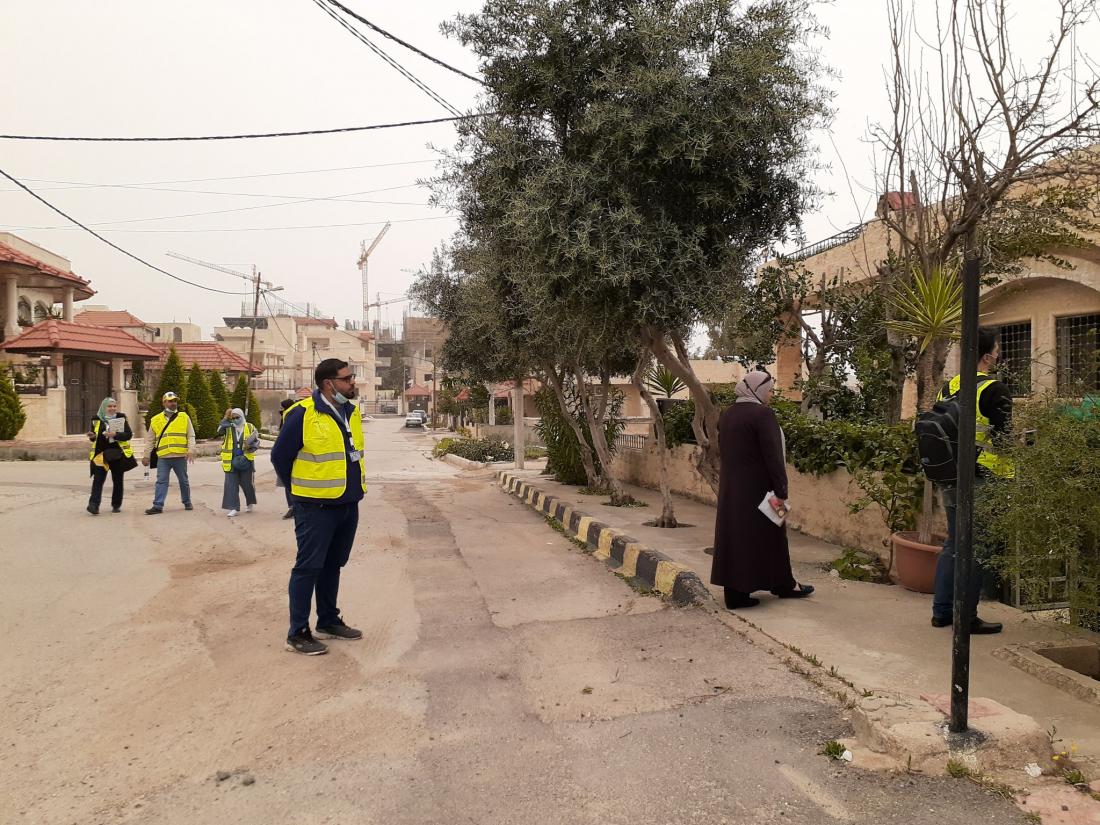MED-InA: Greater Irbid Municipality in Jordan involves 2,049 households in Zero Waste efforts

The Municipality of Irbid is one of the 3 MED-InA pilot cities, deploying the project’s multi-stakeholder approach, which simultaneously activates the public sector, private sector and civil society towards a Zero Waste local economy.
Context: Greater Irbid is Jordan’s 3rd largest city with over half a million inhabitants, but has the highest population density in the country, and is the 2nd largest industrial city in terms of volume of investment. Located in northern Jordan, it has been among the 3 governorates most affected by the influx of Syrian refugees for the past decade: more than 130,000 according to UNHCR in 2020, i.e. 20% of the total population (of refugees, but also of Irbid metropolitan area).
Issue: The combination of population growth, increased migration and growing industrialisation has led to significantly larger waste generation, adding pressure on existing solid waste infrastructure in municipalities that have been struggling to provide essential services to fast-growing local communities.
Actions: Solid waste management is one of the most important services provided by Jordanian municipalities. The Greater Irbid Municipality has been working on improving its waste management processes and infrastructure, with financial and technical support from the German cooperation (GiZ) since 2015. With the MED-InA project, the municipality shows its will to go beyond waste management and tackle the issue of waste production in the first place, to reduce, prevent and/or reuse waste and tend towards a circular economy at local level.
To do so, the MED-InA approach entails a common effort of public, private and civil society stakeholders. The main action was the launching of citizen involvement, during which a team of 13 volunteers was recruited and trained by the municipal team, and went door-to-door to enrol 2,049 households (surpassing the 2,000 target) right before Ramadan 2021 (this spring) in the Al-Rabyeh neighbourhood. They used a questionnaire to define current behaviours regarding waste production and disposal, and identify how they can change positively. Respondents are given 3 easy actions to take every day to save waste and energy, for example walking short trips instead of using cars, using large bottles instead of small ones, and/or replace classic lightbulbs with LEDs.
After 6 weeks the coaching phase starts, with individual interviews by telephone, to keep up with their progress and readapt their challenges accordingly, or provide them with additional steps they can take for the next period of 6 weeks, and so on.
This citizen engagement process is supported by communication activities led by the Greater Irbid Municipality, through ads and radio broadcasting to gain momentum and start a competition between neighborhoods to become the best in terms of waste management. The private sector has a key role to play in cutting waste production, hence 2 shopping malls (Irbid City Center & Irbid Mall) being approached to work on the issue together with their retailers, customers and the municipality.
In this context, the municipality has hired a consultant that will provide technical support and recommendations to design and implement a Zero Waste strategy tailored for the city of Irbid. The selected expert has started their mission this summer, while the local MED-InA team involves citizens in defining their preferences whether to install sorting facilities in urban parks or to set up door-to-door collection, and where to install composting containers, and which size, etc.









